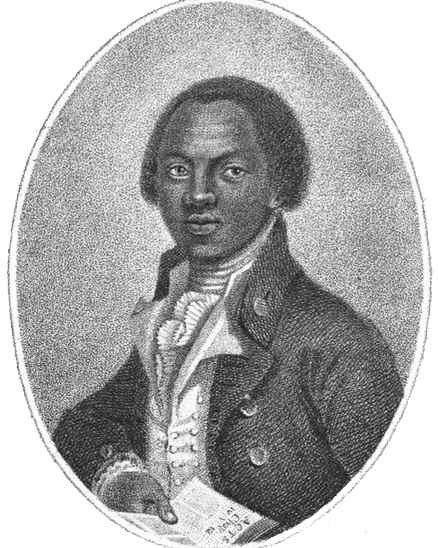Olaudah Equiano - The Voice of Freedom
Born: Approximately 1745, Essaka, Nigeria
Died: March 31, 1797, London, England
Olaudah Equiano was active in the abolitionist movement in England.
Born around 1745 in a village called Essaka, in what is now southern Nigeria, Olaudah Equiano was part of the Igbo people. He lived with his family until the age of 11, when he and his sister were kidnapped by local slave traders. They were separated and sold several times within Africa before Equiano was forced onto a slave ship heading across the Atlantic Ocean. This journey, known as the Middle Passage, was cruel and terrifying. His first stop was the island of Barbados in the Caribbean.
Equiano was then taken to Virginia, where he was bought by a British sea captain named Michael Henry Pascal. Pascal gave him the name Gustavus Vassa, a name Equiano would use for much of his life. He served Pascal at sea for many years and was taken to England. While living in London, he was baptized and began to learn how to read and write, rare opportunities for someone enslaved.
After several years, Equiano was sold again, this time to a merchant in the Caribbean. Eventually, he was sold to Robert King, a businessman who promised him that he could buy his freedom for 40 British pounds. Equiano worked hard, saved money from trading, and studied reading and writing further. In 1766, he finally earned enough to purchase his freedom. He was about 21 years old.
Although Equiano was now free, his life was still full of challenges. He was nearly kidnapped and enslaved again in America, so he returned to England, where he would spend most of the rest of his life. He worked at sea in many roles, sometimes as a sailor, a steward, and even briefly as a ship captain.
Eventually, Equiano settled in London and became a strong voice in the movement to end slavery. He helped organize efforts to support freed slaves and joined the Committee for the Relief of the Black Poor. He briefly served as a commissary, or official helper, for a group of freed slaves who were sent to start new lives in Sierra Leone, West Africa. However, he was replaced after speaking out about the poor treatment of the settlers.
In 1789, Equiano published a book about his life called The Interesting Narrative of the Life of Olaudah Equiano, or Gustavus Vassa, the African, Written by Himself. In it, he told the story of his capture, life as a slave, and journey to freedom. He also described Africa with pride and shared his belief that slavery was cruel, unfair, and should be ended. His book was one of the first personal stories about slavery to become popular around the world. It was published in nine English editions during his lifetime and was also printed in the U.S. and translated into several other languages, including Dutch and German.
Equiano’s writing helped people in Britain understand the horrors of slavery and inspired many to join the abolitionist movement. He gave speeches, shared his story, and worked closely with other activists to fight against the slave trade. Some people even call Equiano the "father of the slave narrative" because of the powerful way he used his life story to create change.
In 1792, Equiano married an Englishwoman named Susanna Cullen, and they had two daughters. He died in London on March 31, 1797. Though the exact location of his grave is unknown, his memory lives on. In 2009, a memorial was placed in St. Margaret’s Church in London, where he had been baptized many years earlier.
Even after his death, Equiano’s book continued to influence the world.
In 1807, ten years after he died, the British Parliament passed the Slave Trade Act, which ended the African slave trade in the British Empire. His voice helped make that possible. Olaudah Equiano’s courage, honesty, and powerful words made a lasting difference. He showed the world what freedom means, and why it matters for everyone.
References:
“Olaudah Equiano.” Encyclopædia Britannica, Encyclopædia Britannica, inc., 31 July 2025, www.britannica.com/biography/Olaudah-Equiano.
“Olaudah Equiano.” Equal Justice Initiative Reports, 17 Oct. 2022, eji.org/report/transatlantic-slave-trade/origins/sidebar/olaudah-equiano.
“Origins: The Transatlantic Slave Trade.” Equal Justice Initiative Reports, 25 Oct. 2022, eji.org/report/transatlantic-slave-trade/origins/#the-barbarity-of-the-middle-passage.
Keywords:
Civil Rights, Justice, Courage, Perseverance, Freedom, Honesty, Challenge Injustice, Stand Up for Your Beliefs
Explore ARTEFFECT projects about this Unsung Hero:
Olaudah Equiano Artworks
- Collections: Art Gallery, Unsung Heroes

